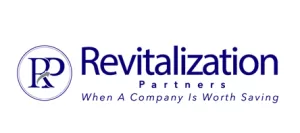 Over the years we have worked with many businesses ranging from startups to very large multinational companies.
Over the years we have worked with many businesses ranging from startups to very large multinational companies.
In many situations, they are companies that have fallen on hard times, with declining sales and profits and we find that management is scrambling on a day to day business just to make payroll or pay their creditors.
While our initial objective is to take steps to stabilize the business, we also work on understanding what went wrong and what needs to be done to fix the company on a longer-term basis.
As part of this process we typically meet with the CEO or business owner and ask the question, “What business are you in?”
A Variety Of Answers …
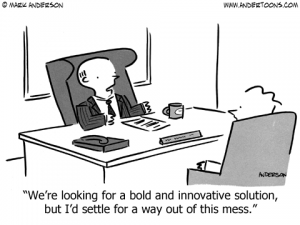 It is interesting to note that when we ask this question, we receive a variety of answers.
It is interesting to note that when we ask this question, we receive a variety of answers.
They range from a blank look to a long discussion regarding how great their products are and if they only had enough cash to build inventory, their customers would enthusiastically purchase everything they could make.
The truth is that many troubled companies really do not have a clear vision of what business they are in, what customer(s) they serve and how much their customers are willing to pay for their products. If they do have some idea about what business they are in, they usually have lost sight of their customers’ requirements.
And when we start to ask additional questions, we learn that management is more focused on the product or service they are offering, than what the customers are buying.
What Demand Do You Satisfy?
 In 1960, Ted Levitt, a Harvard Business School professor, developed the idea that for a business to survive over time, business leaders should see themselves as satisfying a customer demand rather than producing a product.
In 1960, Ted Levitt, a Harvard Business School professor, developed the idea that for a business to survive over time, business leaders should see themselves as satisfying a customer demand rather than producing a product.
While this advice seems like common sense, in today’s business world we frequently find that business owners/management teams are not focused on this important concept.
The business landscape is littered with failed companies that have violated this basic principal regardless of what industry they serve.
Some Classic Examples …
For example, there are many high-profile retail companies that did not understand the change in consumer purchasing habits and failed to make a serious move to embrace e-commerce.
Former CEO and once high-flying retail executive, Mickey Drexler conceded, in a recent interview: “J.Crew’s Mickey Drexler Confesses: I Underestimated How Tech Would Upend Retail”.
 Another once highly successful company in a different industry, Blackberry, was the leading provider of cell phones in the early 2000’s.
Another once highly successful company in a different industry, Blackberry, was the leading provider of cell phones in the early 2000’s.
They were the go-to brand at the time, when IPhone and Android operating systems where just being introduced. A recent article recounted the Blackberry’s demise with the following quote: “Focusing on the tens of millions of customers it already had, BlackBerry missed out on the billions that were to come”.
 A final example is a software company that we recently worked with as a court-appointed receiver, that went out of business, because they only had one large multi-national customer comprising almost 100% of their revenue.
A final example is a software company that we recently worked with as a court-appointed receiver, that went out of business, because they only had one large multi-national customer comprising almost 100% of their revenue.
The management team was so focused on expanding their business with this customer, they lost sight of their multi-customer expansion strategy and failed as a result.
Extremely Important To …
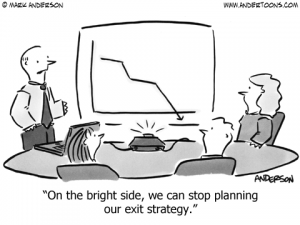 The list of companies that have failed because of not focusing on customer demand is endless.
The list of companies that have failed because of not focusing on customer demand is endless.
The real question that a business owner must ask is, “what steps should I be taking to ensure my products are aligned with the demand of my current or future customers?”.
While it is important to have a product strategy, it is extremely important to understand the consumer demand for the products you are offering.
A comprehensive consumer focused strategy has many elements. The following are a few examples we have used successfully in our practice.
Extremely Important To …
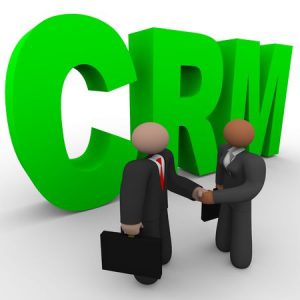 (1) For instance, it is important for the management team to periodically meet with its current key customers and potential future customers to understand how the company is meeting their needs now and in the future.
(1) For instance, it is important for the management team to periodically meet with its current key customers and potential future customers to understand how the company is meeting their needs now and in the future.
Understanding what the current and future needs are is an important element of building a focused consumer strategy. It is also extremely important to build a customer-centric culture so everyone understands how to best serve them and make sure that critical information is communicated up the chain.
For example, in one large company we worked with, we established a new position, Chief Customer Officer, to reinforce the culture and ensure the customer’s voice was being heard.
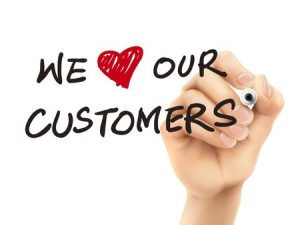 (2) Another important initiative is to have a practice of post-sale follow-up with a customer service representative or a short post-sale survey.
(2) Another important initiative is to have a practice of post-sale follow-up with a customer service representative or a short post-sale survey.
This will allow important feedback and establish a base line for how customers feel after the sale and gauge problems that are occurring with product or service in real time.
The effort to understand the requirements of your customers requires a laser-like focus, it is a fundamental requirement that contributes to the success of any business.
It requires considerable effort; however, the end result is a significant contribution to the success of the company.
Revitalization Partners is a Northwest business advisory and restructuring management firm with a demonstrated track record of achieving the best possible outcomes for our clients. And now, we’ve written a book to help our readers understand the issues facing their businesses. You can find this compilation of our business thoughts at:
https://revitalizationpartners.com/we-could-write-a-book/ or on Amazon.
We specialize in improving the operational and financial results of companies and providing hands-on expertise in virtually every circumstance, with a focus on small and mid-market organizations.
Whether your requirement is Interim Management, a Business Assessment, Revitalization and Reengineering or Receivership/Bankruptcy Support, we focus on giving you the best resolution in the fastest time with the highest possible return.
